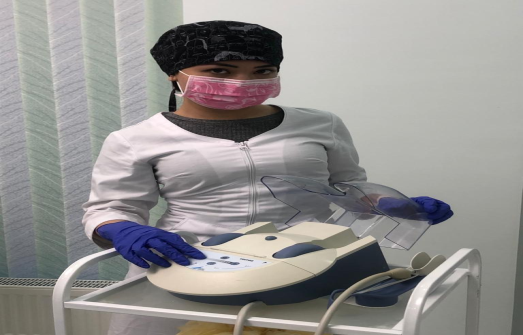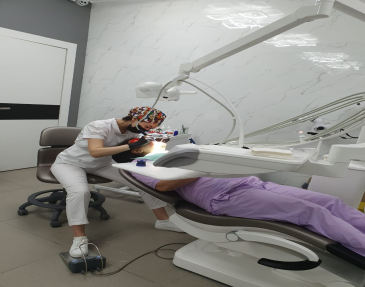|


|
Description of the educational program
|
The educational program was developed with the aim of introducing the best practices of recognized international medical schools into the educational process of KazNU.
When developing the Educational Program, the programs of the European Union countries and the recommendations of the Association for Dental Education in Europe (ADEE) were analyzed and taken into account.
The educational program is based on a competency-based approach. The final learning outcomes are formulated in accordance with the recommendations of the Accreditation Council for Graduate medical Education (ACGME) and the standards of the World Federation of Medical Education - WFME (World Federation of Medical Education) - Global Standards
|
|
Graduate model
|
- Understand the structures and mechanisms of the adult and child's body at all its stages of development, in the state of health and in dental diseases from the molecular level to the whole organism; mental health of a person and the phases of its development in health and disease;
- Apply knowledge of biomedical, clinical, social, behavioral and population sciences to solve problems that affect the level of human dental health; understand the interaction of an individual with society and the environment;
- Demonstrate the ability to identify critically new information, apply this knowledge to solve biomedical, clinical problems and scientific research;
- Assess, analyze and apply knowledge, identify gaps in one's own learning, focus on personal growth and lifelong learning, and participate in scientific research aimed at advancing knowledge in the field of human health;
- Demonstrate the ability to deliver safe, patient-centered and evidence-based dental care for the prevention, diagnosis and treatment of disease and health promotion;
- Collect information from patients and other sources related to the diagnosis, treatment and prevention of common and emergency conditions, including the performance of diagnostic procedures;
- Interpret, analyze, evaluate and prioritize relevant data to plan the diagnosis and management of dental disease, including initiating appropriate interventions;
- Work effectively in an interprofessional / multidisciplinary team with other healthcare professionals;
- Demonstrate adherence to the highest standards of professional responsibility, honesty and accountability; comply with ethical principles in all professional interactions with patients, families, colleagues and society at large, regardless of ethnicity, culture, gender, economic status or sexual orientation;
- Demonstrate and apply effective verbal, non-verbal and written communication skills to collaborate with patients, families and colleagues; effectively communicate oral and written medical information to provide safe and effective patient care;
- Maintain the necessary documentation and carry out paperwork in dental health organizations;
- Demonstrate the ability to effectively work within the health care system, as well as contribute to its improvement, paying attention to quality, safety in providing care to patients;
- Participate in scientific projects using methods of forecasting, designing and modeling processes and phenomena in the field of dentistry and biomedical research
|
|
|
Features of the educational program
|
The form of study is daytime,
Language of instruction: Kazakh, Russian, English
|










